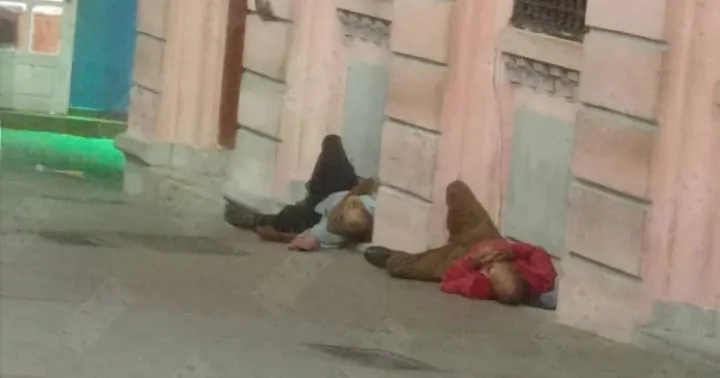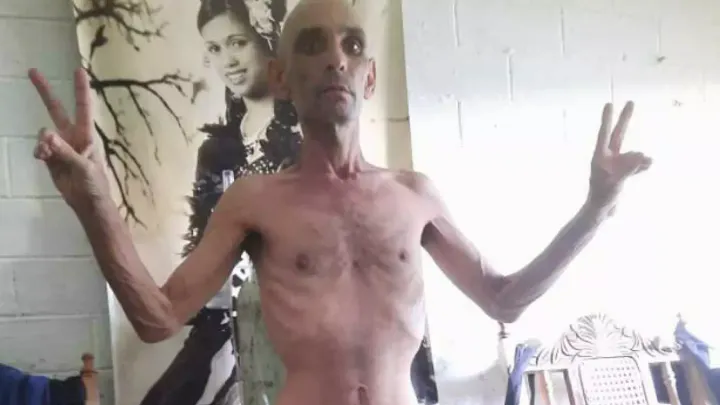The new pension calculation: another regulation to deprive Cubans of their rights
The new decree for pensioners and retirees acknowledges the regime's inability to cope with public expenditure.

Retirees in Cuba are becoming increasingly vulnerable every day, as pensions guarantee less and less the satisfaction of their basic needs. Many, those who are able, have been forced to re-enter the workforce. Measures taken by the Government such as Decree 99, in line with a policy that claims to address the growing aging population, complicate the outlook for those who, after working their whole lives, are unable to fully enjoy the deserved rest. The recently published legal body is yet another regulation to deprive Cubans of their rights. Incidentally, it acknowledges the Government’s inability to face public spending.
Decree 99 states that “the aging of the Cuban population affects the increase in expenses of the social security system’s budget, due to the rise in the number of people reaching retirement age and the time spent as pensioners.” It also refers to the “decrease of contributors to the system” given the impossibility of replenishing the workforce.
Public spending, however, is the result of poor governmental management, overcontrol, and lack of incentives and social policies to encourage young people of working age. This is intended to be remedied with cuts, and a part is paid by those workers of retirement age who are entitled to more than 9,510 pesos in pensions.
The new regulations will only apply to workers in the business sector, leaving out the budgeted sector (Health and Education, for example), and it does not apply to payments for master’s and doctoral degrees.
It will only apply to those workers who retire from January 4, 2024. For those already retired or in the process of doing so, the previous regulations will remain in place.
Pensions for age and disability are determined in Cuba by calculating the average monthly salary of the best five years of the last 15 worked. This system will not undergo any changes; what Decree 99 has modified is the concept of “monthly salary,” say lawyers from DIARIO DE CUBA.
What the regulation establishes will only be applicable for workers who earn profits or payment for results, becoming a setback for those who work in the state sector and who have maintained the idea of securing a “good retirement.” This aspiration was supported by the measures approved in 2021 to strengthen the socialist state enterprise. Three years later, Decree 99 ends it.
With no other purpose than to cut the budget at the expense of the effort of Cuban workers, the regulation says, “as a result of the payment for the distribution of profits, pensions with high amounts have been generated, so it is necessary to modify the procedure to determine the basis for calculating the pensions for age and total invalidity, in order to mitigate the expenses of the social security budget.”
No matter the effort, the right to work, or the accumulated income of the workers, only those who do not exceed 9,510 pesos (the last active salary scale) will receive 100% of the pension calculation.
The regulation that came into force on January 4 has generated criticism, “doubts and concerns of the population,” according to Virginia Marlén García Reyes, director general of the National Institute of Social Security (INASS). “Clarifications” from the official were collected in a note on the official Cubadebate portal, where retirees have expressed their dissatisfaction with their general situation in the comments.
For Luisa, what is needed is for pensions to be increased. “It is impossible to buy in the market, pay for water, electricity, gas, at these times when prices are rising and rising. All retirees should be called vulnerable, which by the way, is a considerable figure. It is urgent that our pensions are increased to live and not to die.”
Pedro Cabrera said ironically: “Only the business sector will be affected, that is, those who contribute wealth. It doesn’t matter that the salary earned since 2021 was based on the salary regulations established in the country, and that it has been contributed, month after month, to Social Security. Yes, very fair.”
José Reyes Fuentes regretted: “Retirees before the reordering that we are reincorporated into work for obvious reasons, we will have to continue until the last day, because apparently that debt of justice is not in the plans of anyone.”
“Two university degrees, a master’s degree, and 45 years of work, 42 of them as a university professor, and I am paid 2,400 in retirement, 20 dollars at the official CADECA exchange rate, and those who retired after me are paid about 6,000. Who dares to give an explanation for something so unfair. So far no one. Let’s hope this is one of those things that can be solved sooner rather than later,” said Fernando.
A reader identified as Rodríguez said: “I am 75 years old. I retired in 2010. At present, my wife and I live with my pension of 1,678. We are considered vulnerable. Where do I have to go so that social workers can evaluate my case. I am having a pretty ugly time.”
The economic independence of the elderly in Cuba and the meager aid from the Cuban State to the most vulnerable evaporated after the “monetary reordering.” This group has been plunged into misery while their situation is exacerbated by the inflation that the Island is suffering. In February 2022, Cuba had around 1,600,000 retirees, and of them, more than half were receiving the minimum of those pensions.




Comments ()